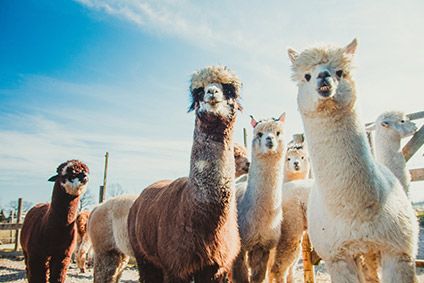
UK retailer Marks & Spencer is said to be the latest fashion retailer to phase out the use of alpaca wool in all future product developments.
The move comes after what PETA US says is the first-ever alpaca wool exposé in which the organisation claims workers at Mallkini – the world’s largest privately owned alpaca farm in Peru – held struggling, crying alpacas by the ears as they were roughly shorn with electric clippers, causing some to vomit out of fear.
The quick, rough shearing left the animals cut up and bleeding from deep wounds, which were sewn up without adequate pain relief.
After viewing the xposé, high street retailer M&S confirmed to PETA it will eliminate alpaca [wool] from all future product developments.
“Marks & Spencer’s decision will prevent many alpacas from being tormented for their wool,” says PETA director of corporate projects Yvonne Taylor. “We urge all retailers to protect these vulnerable animals by following the company’s compassionate example and introducing a ban on alpaca fibre.”
Marks & Spencer joins Esprit, which previously committed to phasing out the material. Gap Inc, which owns the Banana Republic and Athleta brands, and H&M Group, have all cut ties with Mallkini’s parent company, the Michell Group.
The activists are asking Peruvian authorities to investigate Mallkini for possible violations of the country’s animal protection laws.
The animal rights group says that in addition to causing gentle alpacas immense suffering, the production of alpaca wool “is also terrible for the planet.” The Higg Materials Sustainability Index ranked alpaca wool as the second most environmentally damaging material after silk, noting that it’s six times as harmful as polyester and more than four times as damaging as modal, viscose, rayon, lyocell, acrylic, and other vegan materials.
However, annual shearing of the animals is necessary not only to obtain the fibre but also to prevent them from suffering from the heat and disease that excess hair would cause.
Mallkini is the only alpaca farm in the world with Organic Certification granted by the USDA Organic and the Organic EU Regulation, which covers the soil, breeding, handling, and shearing of alpacas. It is also open to tourists, where they can watch the shearing process.
“We guarantee our clients, collaborators and community our commitment to continuous improvement and respect for the good practices of animal treatment. We have contacted PETA in order to establish a dialogue on this matter,” the Michell group says.



